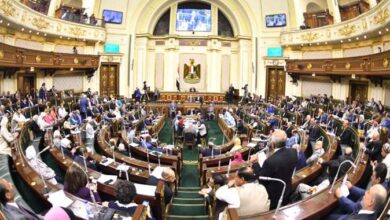Arab governments or their investment arms may soon buy Egyptian treasury bills to help the government reduce the highest borrowing costs since 2008, Egypt’s Deputy Prime Minister Hazem El Beblawi said.
Egypt is in talks with Saudi Arabia and the United Arab Emirates to buy the instruments, El Beblawi, who is also the country’s finance minister, said in an interview in Washington, where he is attending the annual meetings of the International Monetary Fund and the World Bank.
“It can materialize anytime but we have not yet finalized the agreement,” he said. “We are really concerned about increasing interest rates.”
The chaos accompanying this year’s popular revolt that toppled President Hosni Mubarak has battered tourism revenue, weakened the pound and prompted foreign investors to cut holdings of government debt. The Central Bank of Egypt canceled the sale of two- and three-year bonds on 19 September after domestic investors demanded yields that authorities deemed high, according to a government official who declined to be identified.
Egypt raised 7.5 billion pounds (US$1.3 billion) through the sale of six-month and one-year treasury bills on 22 September. The average yield on 182-day notes advanced 10 basis points, or 0.1 percentage point, to 13.338 percent, the highest since October 2008, according to central bank data on Bloomberg. The average yield on one-year securities rose six basis points to 13.882 percent, the data show.
Foreign investors sold a net $7.1 billion of mainly treasury bills in the first half of the year according to central bank data. That left domestic banks to finance a budget deficit that the government is aiming to shrink to 8.6 percent of gross domestic product in the fiscal year through June 2012, from an estimated 9.5 percent in the previous 12 months.
“There isn’t enough competition,” El Beblawi said.
The government isn’t planning to sell international bonds because of public “apprehension when it comes to foreign borrowing, though economically speaking it might be wise,” El Beblawi said.
The yield on Egypt’s 5.75 percent dollar bond due in April 2020 has tumbled since it peaked at 7.07 percent at the height of the anti-Mubarak revolt on 31 January.
It surged 40 basis points today, the most since January, to 5.89 percent at 4:14 p.m. in London according to data compiled by Bloomberg, amid investor concerns about global economic slowdown. The pound was unchanged at 5.9730 per dollar.
The country is now in the final stages of talks with Saudi Arabia and the United Arab Emirates for about $5 billion in loans to support the budget and finance projects, El Beblawi said. The finance minister’s predecessor turned down a $3 billion loan from the IMF in June within three weeks of negotiating it.
While Egypt hasn’t requested a new loan from the IMF, El Beblawi said he told the fund the government has no “inhibitions” and will consider “all their ideas on how to help.” The government has completed agreements to borrow $400 million from the World Bank to finance railway and irrigation projects, El Beblawi said.




